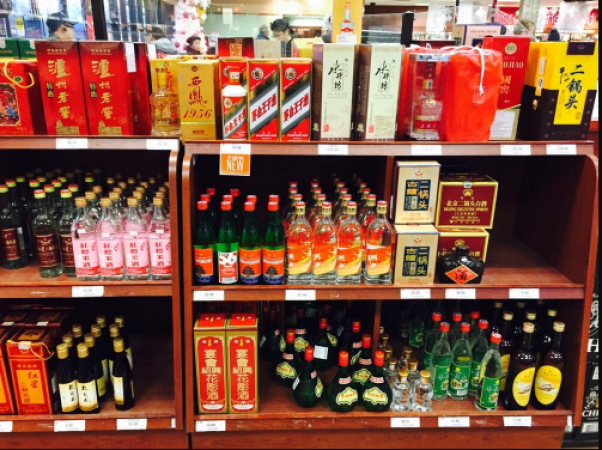
Taipei: A lawmaker from the island's main opposition party said Tuesday after meeting with Chinese officials that Taiwan's best-known sorghum liquor distiller's ban on entry into mainland China was due to paperwork and not Beijing "fixing things". " because of. making it difficult".
Kinmen Kaoliang Liqueur, a famous alcoholic beverage made on the island of Kimoye under Taiwan's control, has been temporarily banned from entering the mainland, it announced on its website on Saturday.
Seven additional beverage exporters and more than 100 seafood traders have also been denied entry to the mainland, according to Taiwanese officials.
Concerns have been raised about possible political retaliation from Beijing against the island's exports as a result of the trade action.
Also Read: China and Australia, two "natural partners," are rebalancing the situation after 50 years
Representative Chen Yu-chen said in a statement on Tuesday that "officials related to the mainland said that [Qamoy] has a lot of contact with the mainland and believes that by the time the supplementary documents are completed, the inaccuracy will be resolved." There would be no reason to." And there's no point in making things difficult.
Six months after the mainland introduced new customs laws on food imports, officials in Taipei reported on Saturday that the mainland had rejected 2,409 requests to import all kinds of food and beverages.
According to the Kuomintang party's Chen, mainland officials see "no reason" why the wine cannot be approved for import after the paperwork is completed.
Chen, the representative from the islands, also known as Kinmen, who arrived in Xiamen on the mainland on Monday, is scheduled to leave for Taiwan on Wednesday.
Officials in Taipei reported on Saturday that 2,409 requests to import all kinds of food and beverages had been rejected by the mainland since last October, six months after new customs rules on food imports came into force on the mainland.
Also Read: Cisco begins letting go of 4,000 workers after Amazon and Meta
Beijing views autonomous Taiwan as a province that should be reunited with the mainland, possibly by force. Relations between Beijing and Taipei began to deteriorate in 2016 following the election of Taiwan's President Tsai Ing-wen, head of the independence-leaning Democratic Progressive Party.
The US and other nations with diplomatic relations with Beijing recognize the One-China doctrine, which holds that Taiwan is part of China, even if they do not explicitly agree to it. Washington does not have an official position on Taiwan's status, but it rejects any attempt to annex the island through force.
The two sides broke off their semi-formal talks due to the Taipei side's refusal to accept the "One-China" basis for holding talks. During the more cordial period between 2008 and 2015, several trade and transport agreements were signed.
Exporters may have received approval more quickly in the past, according to Huang Kwei-bo, associate professor of diplomacy at National Chengchi University in Taipei.
You almost got it right, so move on when political relations are better, but now you have to follow every rule and every flaw or small problem counts," Huang said.
A possible "preliminary" reopening of direct postal, commercial and transport links between the remote Taiwan islands and parts of Fujian province, including Xiamen, was also discussed by Chen and his Xiamen counterpart. Outer islands such as Kumoi and Matsu are included.
Before direct flights between Taiwan and the mainland began in 2008, the "Mini Three Links" scheme helped Taiwanese investors access the mainland. Border controls implemented under COVID-19 have closed the link.
The MLA's statement said that "both sides are of the view that the Mini-3 link should be opened at the earliest."
She claimed that authorities on the mainland insisted on the quarantine rules being "as convenient as possible" for users of the link.